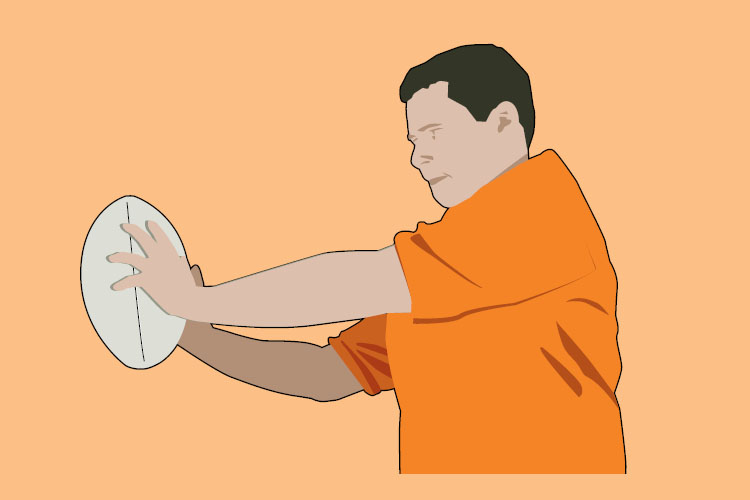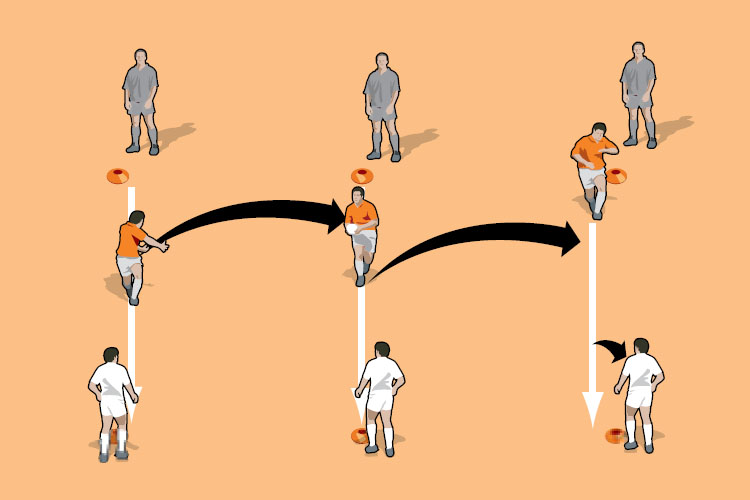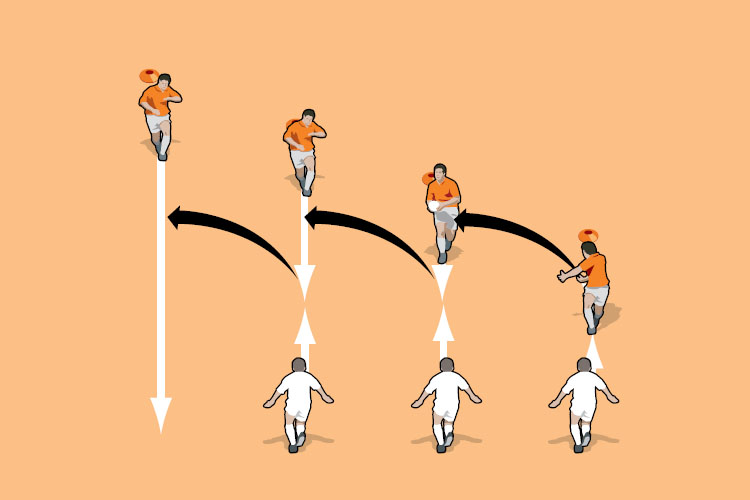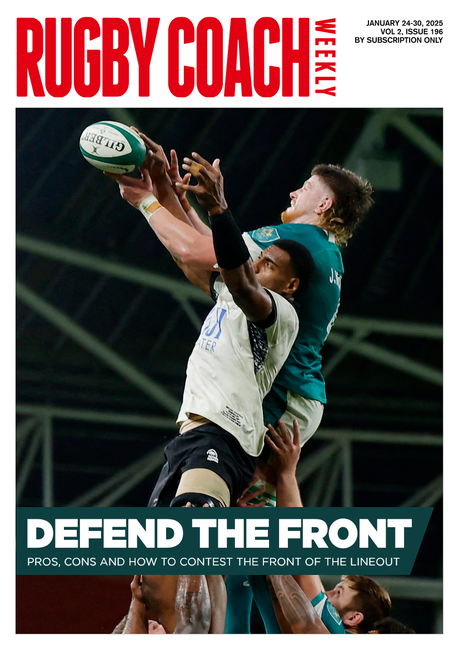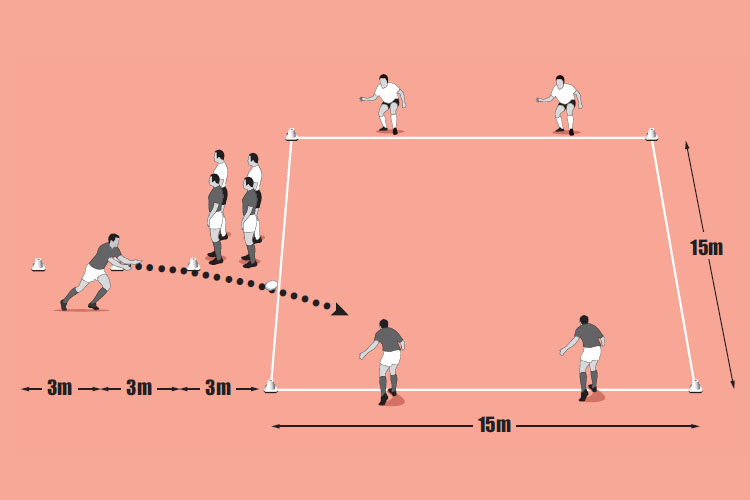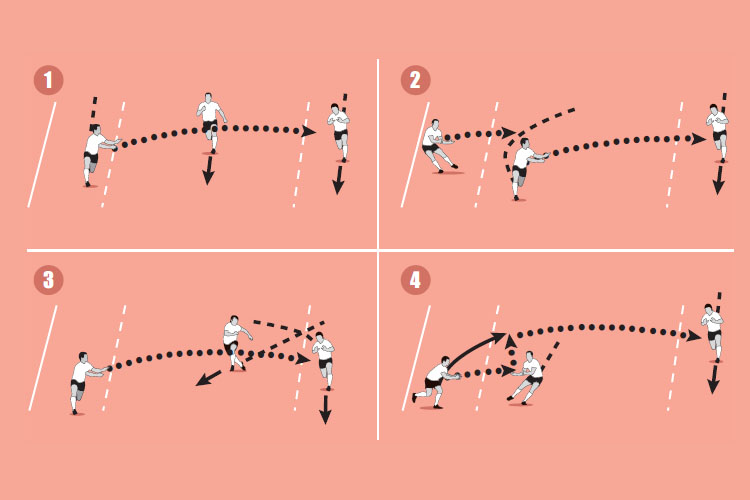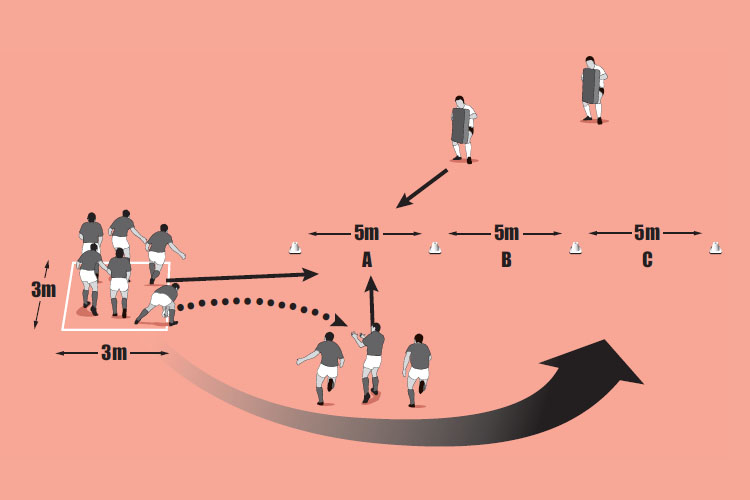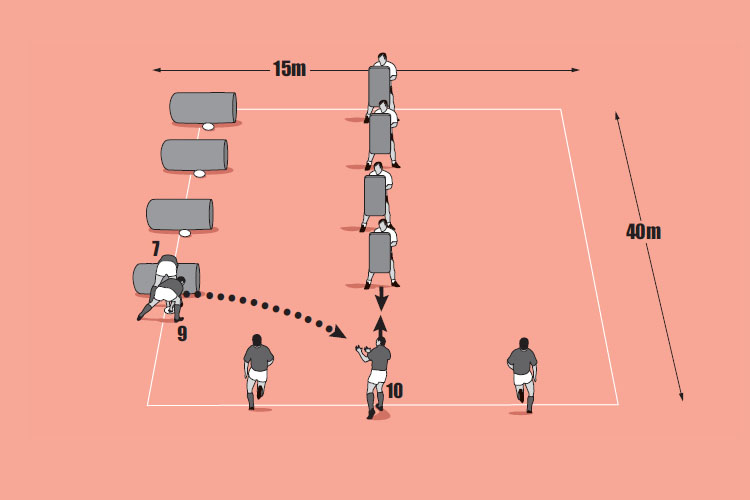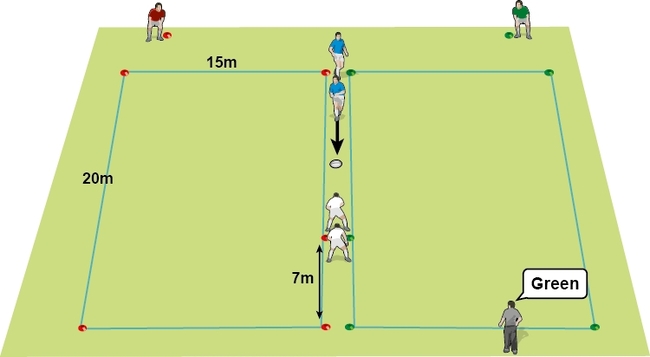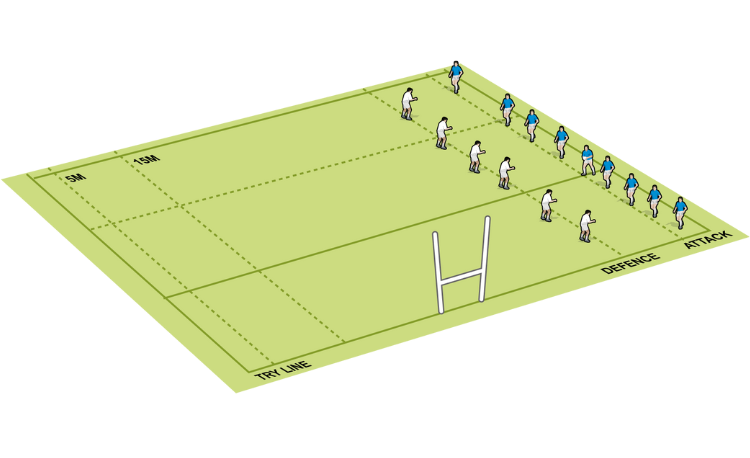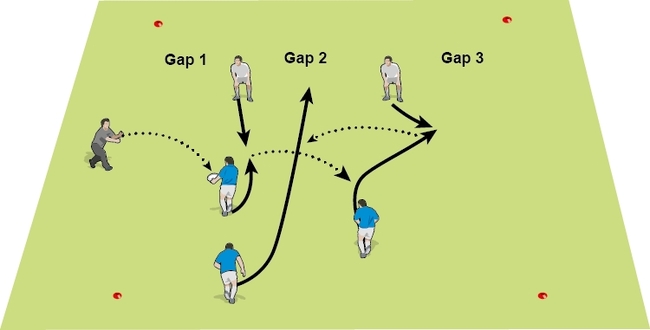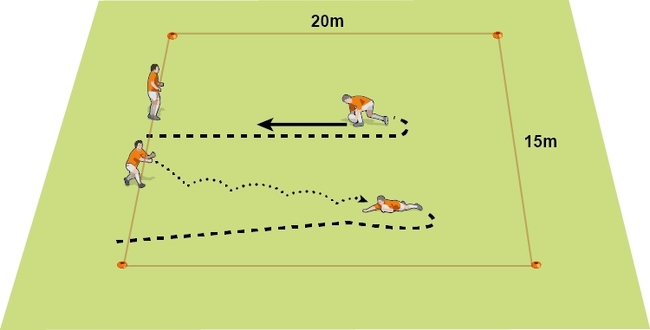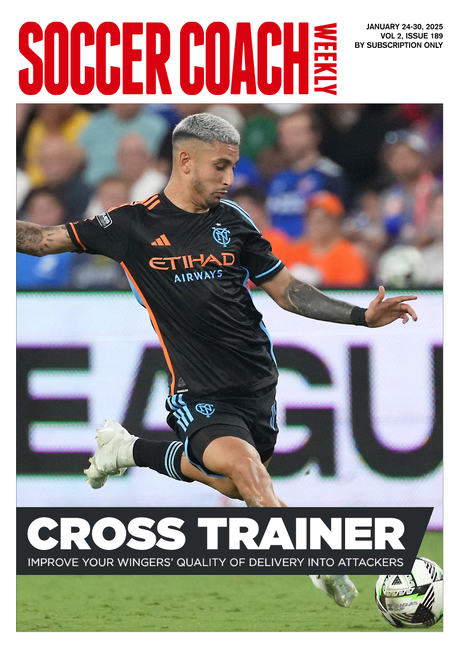Pass faster
Faster passing shifts the ball to where the defence is not, before they can fill the gap. Long passes are easier to defend because the defenders can shift as the ball is in the air. If a team passes the ball quickly, defences find it more difficult because their focus is constantly changing.
Warm up time: 5-7
Session time: 8-10
Development time: 5-7
Game time: 10-15
Warm down time: 5-7
What to think about
- My players are struggling to catch the ball away from the body.One excellent strategy is to use mini rugby balls (such as souvenir balls), tennis balls or golf balls to develop the players’ ability to catch the ball cleanly in their hands. Smaller balls are harder to catch into the chest and easier to catch in the hands.
- Flat or deep starts?This exercise works really well if the players start in a flat line and time their runs onto the ball. The second player waits until the first player has moved forward a metre or so before starting. The third player similarly waits for the second player and so on.
set-up
- Focus on catching the ball cleanly and away from the body.
- Keep the ball away from the body as you pass.
- Use your wrists to control the accuracy of the pass.
What you get your players to do
Make groups of three run across the square, passing the ball as fast as they can. The player in the middle should aim to take and give the pass in one movement. When they reach the other side they pop the ball to the next group and the exercise continues cyclically. Keep changing the player in the middle and make sure players practise passing in both directions.Development
- Use groups of four instead of three over the five metre area. Now the two middle players must take and give passes very quickly.
- Introduce a “loop”, where the first player passes and then runs to the end of the line to receive the last pass. The other players have to step in to create space as well as pass quickly.
Related Files
Game situation
Four attacking players use fast passing to get the ball beyond three defenders and score. Each time they score, move the defensive line forward one metre. Use cones to mark where the defence start each time and challenge the teams to beat each other’s record of how close the defence started.What to call out
- “Keep the ball up when you are passing. Don’t drop your hands”
- “Arms outstretched to catch the ball. Give the passer a good target”
Newsletter Sign Up
Coaches Testimonials

Gerald Kearney, Downtown Las Vegas Soccer Club

Paul Butler, Florida, USA

Rick Shields, Springboro, USA

Tony Green, Pierrefonds Titans, Quebec, Canada
Subscribe Today
Be a more effective, more successful rugby coach
In a recent survey 89% of subscribers said Rugby Coach Weekly makes them more confident, 91% said Rugby Coach Weekly makes them a more effective coach and 93% said Rugby Coach Weekly makes them more inspired.
Get Weekly Inspiration
All the latest techniques and approaches
Rugby Coach Weekly offers proven and easy to use rugby drills, coaching sessions, practice plans, small-sided games, warm-ups, training tips and advice.
We've been at the cutting edge of rugby coaching since we launched in 2005, creating resources for the grassroots youth coach, following best practice from around the world and insights from the professional game.
